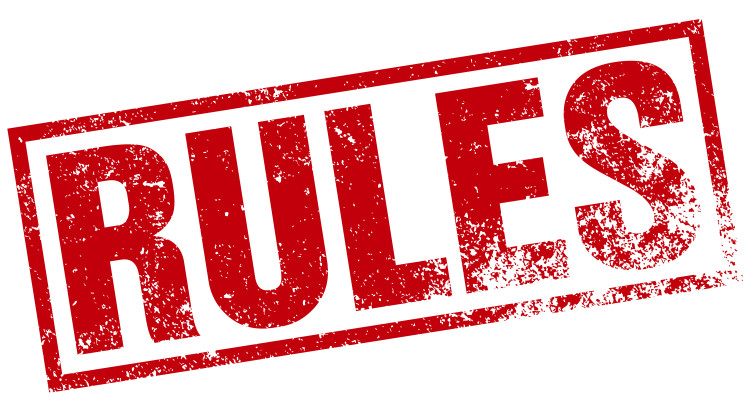 As stated in our earlier post What Is A Donor Advised Fund?, donor advised funds (DAFs) are subject to several private foundation-like rules that sponsoring organizations may not ordinarily be subject to as public charities. These rules are meant to curb abuses and create more transparency within the DAF community. Prohibited actions include providing personal economic benefits to donors and their families, making distributions to individuals, and making distributions for non-charitable purposes. Both donors and sponsoring organizations should be aware of such rules so as to avoid substantial tax penalties and possible revocation of the sponsoring organization’s 501(c)(3) tax exemption.
As stated in our earlier post What Is A Donor Advised Fund?, donor advised funds (DAFs) are subject to several private foundation-like rules that sponsoring organizations may not ordinarily be subject to as public charities. These rules are meant to curb abuses and create more transparency within the DAF community. Prohibited actions include providing personal economic benefits to donors and their families, making distributions to individuals, and making distributions for non-charitable purposes. Both donors and sponsoring organizations should be aware of such rules so as to avoid substantial tax penalties and possible revocation of the sponsoring organization’s 501(c)(3) tax exemption.
Excess Benefit Transactions (IRC §4958)
Transactions that produce an excessive economic benefit to “insiders” of a DAF may result in a tax penalty on both the insider and the organization’s managers (generally, directors and officers) who approved the transaction. An excess benefit occurs if the value of the economic benefit provided by the charity directly or indirectly to any disqualified person exceeds the value of the consideration (including the performance of services) received for providing the benefit. With respect to a DAF and its sponsoring organization, disqualified persons include:
- Donors;
- Donor advisors;
- Investment advisors compensated by the sponsoring organization;
- Family members of a donor, donor advisor, or investment advisor; and
- 35% controlled entities by any of the described persons above.
If an excess benefit transaction occurs between a DAF and any disqualified person listed above, in addition to the required return of the excess portion, an initial excise tax of 25% of the excess portion may be imposed on the person who received the benefit. If the excess benefit remains uncorrected within the taxable period, a second-tier tax equal to 200% of the excess benefit is imposed on the disqualified person. In other words, the person who received the benefit must self-correct the transaction sometime between the date of the transaction and the date on which the tax is assessed or a notice of deficiency with respect to the tax is mailed, whichever is earlier. The sponsoring organization’s managers may also be hit with a 10% tax for willfully approving an excess benefit transaction, up to $20,000.
Additionally, certain DAF transactions are treated as automatic excess benefit transactions for the purposes of the penalty. DAFs are prohibited from issuing grants, loans, compensation, or other similar payments to a donor, donor advisor, or related person. In such transactions, the entire payment, not just the excessive portion, is subject to the excise tax.
Prohibited Benefit Tax (IRC §4967)
A donor, donor advisor, or related person may be subject to a tax penalty if they advise a distribution, or receive, directly or indirectly, more than an “incidental benefit” resulting from a distribution. The penalty tax is 125% of the prohibited benefit, and any prohibited benefit must be returned to the DAF. As an example, a distribution from a DAF to a college for payment of a donor’s child tuition would be a prohibited benefit warranting a penalty tax.
Furthermore, any fund manager (e.g., director, officer, or employee having authority or responsibility with respect to the act in question) who knowingly agrees to make a distribution that confers a prohibited benefit faces a 10% tax amount of the benefit amount, not to exceed $10,000 per transaction. Note, though, that taxes for a prohibited benefit will not be imposed if the taxes for an excess benefit transaction are imposed instead on the same transaction.
Taxable Distributions (IRC §4966)
A sponsoring organization, and its fund manager, may be subject to excise taxes if they engage in “taxable distributions” with respect to the DAF’s grants. A taxable distribution is any distribution from a DAF to:
- Any natural person;
- Any entity other than a public charity or certain government entities if the distribution is not for a charitable purpose; or
- Any foreign organization, disqualified supporting organization (e.g., non-functionally integrated Type III supporting organizations, other supporting organizations controlled directly or indirectly by the donor or any donor-advisor), and most private grantmaking foundations, and foreign organizations without first exercising expenditure responsibility.
A taxable distribution imposes an excise tax of 20% on the sponsoring organization and 5% (with a $10,000 cap) on any fund manager who knowingly agrees to the distribution. Note that the meaning of a “distribution” within the context of this rule has not been clarified by the IRS. Conservatively, this would prohibit payments to any individuals even if goods or services of equal value were provided in return. Under this interpretation, DAFs could only make payments to business entities for goods or services and not to any individuals or sole proprietorships. It appears that the more popular understanding limits the interpretation of distributions to transactions in which value is not being exchanged, such as grants and scholarships.
Excess Business Holdings (IRC §4943)
Lastly, donors and sponsoring organizations must also be aware of excess business holdings rules that are usually applied to private foundations. DAFs must divest any excess business holdings, generally more than 20% of stock of a company, or else be subjected to a 10% penalty, followed by an additional tax if not corrected.
____
Currently, Congress is considering a number of proposals that could affect these DAF excise taxes and potentially require certain distributions.
You must be logged in to post a comment.